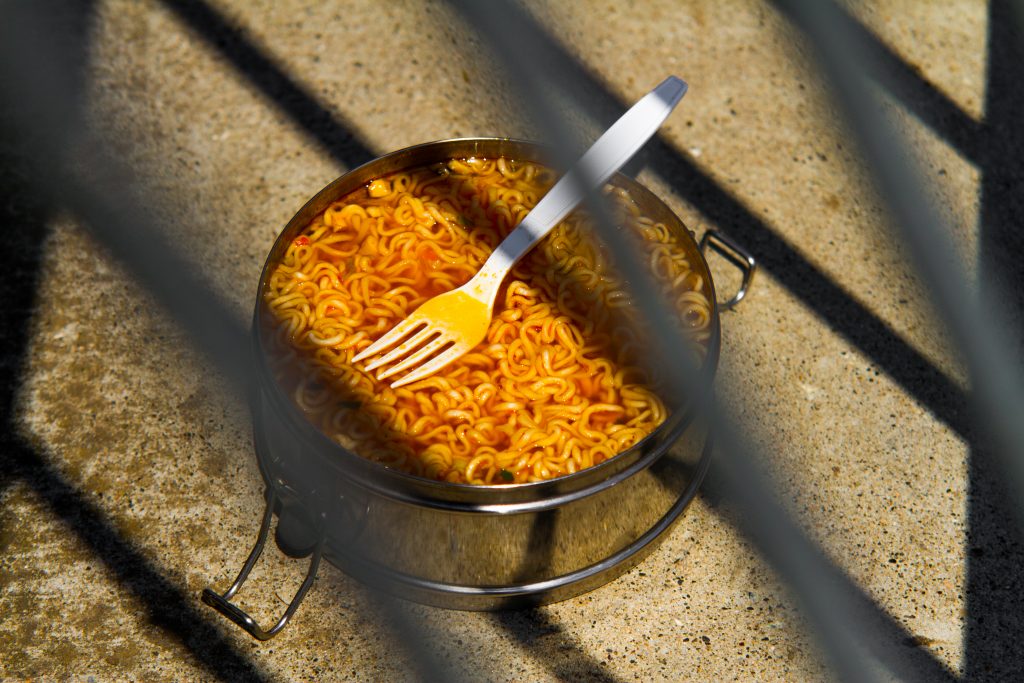From big tobacco to ‘big ramen’: a prisoner’s dilemma
By David Horowitz
Packaged ramen has surpassed cigarettes as the most traded commodity between American prison inmates, according to a study by Michael Gibson-Light, a Ph.D candidate from the University of Arizona’s School of Sociology.
Our $80 billion incarceration system’s most popular item has, for the first time, become a basic human need—food. Twenty-nine cent, chemical-ridden food that maintains value as a source of savory, better-tasting calories.
The widespread appreciation of “soups” within U.S. correctional facilities signals a lower standard of living for prisoners. This new low is brought about by the outsourcing of prison food production from federal and state governments to private companies as a means of saving money.
The Indiana Department of Corrections demonstrated this in 2005, saving $7 million by signing a contract with Aramark Corporation. The department paid Aramark just $1.24 for each meal, according to Lucky Peach article “Fixed Menu.”
However, the facility got what it paid for. Aramark’s food quality is so poor, it was responsible for a prison riot that set six buildings on fire at the Northpoint Training Center in Kentucky in 2009, corrections officer Matt Hughes told the Lexington Herald-Leader.
The $8.2 billion corporation—the largest food provider for American prisons—has also been reported to provide insubstantial meals to correctional facilities in Florida, Indiana and New Mexico.
While Aramark is just one example of a negligent contractor, every business’s goal is to make and save money. Fortunately for them alone, prisons are the ideal place to test new lows, where the complaints of the ones being fed are stuck behind bars.
From a practical standpoint, those new lows ironically work against rehabilitation, the central goal of our incarceration system that aims to prevent habitual offending. It is a goal the current system is failing at, as three quarters of over 400 thousand inmates released from 30 prisons in 2005 returned within just five years of their release, according to a Bureau of Justice Statistics study.
From an ethical standpoint, the right to food is so widely accepted that the General Assembly of the United Nations named it a basic human right in International Declaration of Human Rights in 1948.

Taking American law into account, the Corrections Act of 1986 states prisoners have “the right to be provided with food that is adequate to maintain the health and well-being of the prisoner.”
Furthermore, malnourishment among the nation’s 2.2 million incarcerated people impacts even those who don’t sympathize with them. Malnutrition is associated with deteriorating health, and taxpayers must pay from their own pockets when others—including prisoners—become riddled with health problems.
Our penal system’s idea of rehabilitation relies on the principle that people are able to change for the better. But true to Maslow’s hierarchy of needs, people saddled by hunger are less likely to look beyond their next meal, let alone change old habits.
Ultimately, inmates are less likely to care about self-transformation and reintegration into society when the most widely appreciated commodity they look forward to is cheap, processed, mediocre food.
Such a system cannot truthfully claim to promote rehabilitation until the incarcerated eat well enough to look forward to something better than their next bag of ramen.
